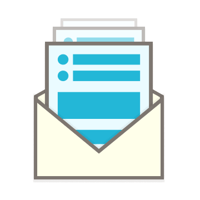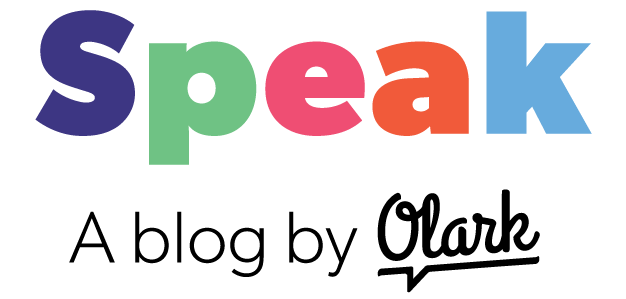Today's guest post comes from Brian Kelly, VP of Product at Nutshell, who explains why end users—not just managers—are the new decision makers for business software purchases. Spoiler alert: vendors are listening...

Just one year ago in January 2015, Scott Brinker of ChiefMartec observed that there were about 2,000 marketing technology companies. This was double his count of martech companies in 2014. There are more tools available than ever before to help organizations with content marketing, social media, lead attribution, business intelligence and everything in between.
[Further reading: Why Brent Summers of Segment says martech will be a driving force in customer experience in 2016.]
Not surprisingly, this growth has led to a plethora of software options for even the most specialized needs of sales and marketing teams. Many of these business-to-business software vendors target high-growth startups and up-market prospects (businesses with $100M or more in annual revenue). It’s no surprise why: Bigger businesses have bigger budgets to spend on software.
But great sales and marketing software isn’t just for companies with deep pockets anymore. Like so many other types of B2B software (think Google Apps and Microsoft Office 365), sales and marketing tools are now affordable and accessible to almost every small and medium-sized business.
How affordable? Enough so that MailChimp was able to add over 3 million new users last year!
Stats aside, I’ve had the opportunity to speak with dozens of small business employees and owners that are actively using or considering buying software to help them to better run their sales and marketing. Here’s what I’ve been hearing from customers, and what I expect we’ll be seeing more of this year.
Prediction 1: Email isn’t going away, but it’s getting better
 Email is simple and ubiquitous. That’s why you can’t ignore it as a method of communicating with your prospects and customers. I’m all for using Slack, Facebook Messenger, iMessage, and Twitter to communicate with my friends, family and coworkers, but when it comes to customers, email is still winning.
Email is simple and ubiquitous. That’s why you can’t ignore it as a method of communicating with your prospects and customers. I’m all for using Slack, Facebook Messenger, iMessage, and Twitter to communicate with my friends, family and coworkers, but when it comes to customers, email is still winning.
Whether it’s sending personalized emails to thousands of your customers with MailChimp, or using Yesware to quickly craft and track emails sent to prospects, small businesses have some really terrific choices to make their email lives more productive.
Expect investment in email tech for sales, marketing and customer support to increase this year. And thanks to so many of these tools being made available as Chrome Extensions and as Gmail add-ons, it’s also really simple for a single individual in a company to start being productive without needing to get buy-in from their boss or company owner (or an IT department to deploy the software).
Prediction 2: Customer intelligence is for everyone, not just large businesses
 Enterprises—those big companies with thousands of employees—have been using intelligence tools to help them better market, sell and support their customers for over a decade. But in the last few years, we’ve seen these tools become available to businesses of any size, even individuals.
Enterprises—those big companies with thousands of employees—have been using intelligence tools to help them better market, sell and support their customers for over a decade. But in the last few years, we’ve seen these tools become available to businesses of any size, even individuals.
With a simple lead scoring tool that tracks what someone does on your website before requesting a call from a sales representative, even a one-person sales team can be smarter about which prospective customer they contact first. These tools get smarter over time, too: After using one for a few months they can compare the attributes and behaviors of your prospects to the historical attributes and behaviors of your best customers, which leads to even better recommendations of who and when your sales team should try to make contact.
Customer intelligence also means a lot less manual data entry: Enter a customer’s email and the software finds their title, company, phone number, picture, social networking activity and more.
Prediction 3: CRM tools will get better for all types of users, not just managers
 One of the big drivers of the first few generations of Customer Relationship Management (CRM) software was to make it easier for executives to access and report on their sales and marketing data. Since sales VPs were largely calling the shots of which CRM their company purchased, they held the most influence on what features sales and marketing software vendors built.
One of the big drivers of the first few generations of Customer Relationship Management (CRM) software was to make it easier for executives to access and report on their sales and marketing data. Since sales VPs were largely calling the shots of which CRM their company purchased, they held the most influence on what features sales and marketing software vendors built.
This led to decent tools for managers but pretty mediocre tools for the majority of end users, the folks in the trenches like sales reps hitting the phones for eight hours a day. Historically, these folks spent way too much time logging meeting notes, creating orders and generating quotes.
These end users are now becoming the primary evaluators and buyers of sales and marketing tools at small businesses. And as a result, the software vendors building these tools have focused on making their day-to-day experience a lot better. Don’t worry about what “consumerization of IT” means—just know that it has led to better, more usable software for everyone.
While these predictions have actually been in-progress for a few years, in 2016 I expect more small businesses to start evaluating, buying and using these tools than ever before. Less manual work, more productivity! Sound familiar?
Let me know what you think by tweeting @resetbrian.

